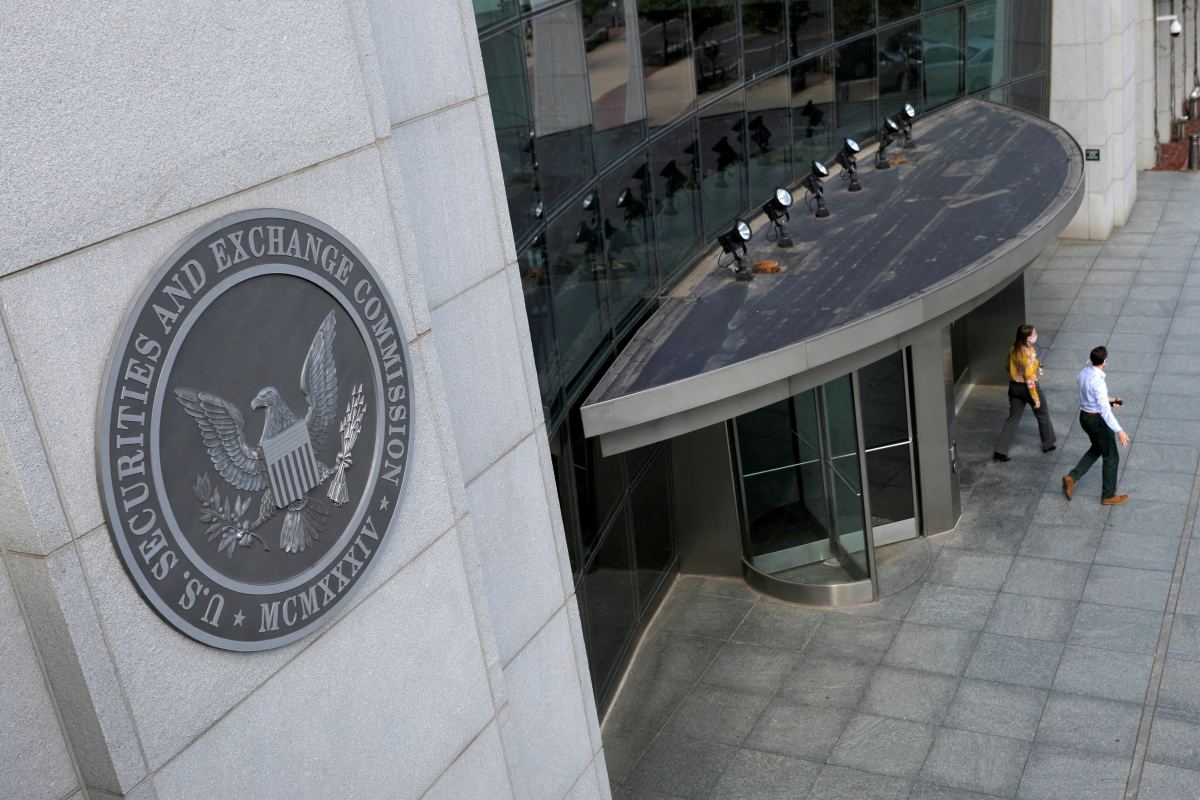Reuters
The U.S. Security and Exchange Commission’s warning shot on Binance’s stablecoin over whether or not it is a security could offer a hint at what type of dollar-pegged tokens may draw regulatory scrutiny, critical information for other digital asset firms offering a less volatile way to trade crypto.
Stablecoins, with a market valued over $137 billion according to CoinGecko, are digital tokens typically backed by traditional assets like the U.S. dollar or U.S. treasuries that are designed to hold a steady value.
But usage is raising questions from regulators who have expressed concern about the disclosures stablecoin issuers provide, as well as the tokens’ potential instability during periods of stress.
Last week, the SEC told Paxos Trust Company, the firm behind Binance’s stablecoin, that it should have registered the product as a security and is considering taking action against the platform, Paxos disclosed. Paxos, a blockchain platform that partners with Binance to issue the token, said it disagreed with the SEC’s position. The firm is now in talks with regulators, according to an internal company email.
While the crypto industry has criticized the SEC’s broad industry crackdown, the move against Binance USD, the third-biggest stablecoin with about $16 billion in circulation, could lend some guidelines for which stablecoin activities may get scrutinized.
SEC Chairman Gary Gensler has previously said he believes some stablecoins are in fact securities, which require registration and additional regulatory oversight.
“Similar problems may await other cryptocurrencies, including stablecoins linked to some system or brand,” said Grzegorz Drozdz, a market analyst at Conotoxia Ltd.
Unlike Tether and USD Coin (USDC), the two largest stablecoins, Binance offers Binance USD holders certain advantages on its platform, including zero transaction fees when swapping Binance USD for certain other tokens, providing an incentive for Binance customers to hold the token.
Those incentives could be central to the SEC’s thinking that the product is a security, experts said.
An SEC spokesperson said the agency does not comment on the existence or nonexistence of a possible investigation.
The New York Department of Financial Services also ordered Paxos last week to stop minting Binance USD.
“To the extent the SEC is looking at stablecoins, I suspect it’s something along these lines [of], are these instruments actually unregistered shares in a mutual fund potentially?” said Jason Allegrante, the chief legal and compliance officer at Fireblocks, an institutional digital asset platform.
Some argue stablecoins should be regulated because they track other assets like gold or the U.S. dollar, similar to an exchange-trade fund.
Paxos declined to comment beyond the statement it previoulsy issued. Binance did not respond to a request for comment. Tether referred to a blog post published Thursday about its reserves.
But the specific features of tokens like Binance USD have some stablecoin issuers keen to highlight their differences.
“Facts and circumstances in any type of regulatory action like this are all different, as are the structural and regulatory considerations with each of the cryptocurrencies that are in circulation around the world,” said Dante Disparte, the chief strategy officer and head of global policy at Circle, the principal operator of USDC.
REGULATION DEBATE
Stablecoins are used for trading between volatile tokens like bitcoin and, in some emerging economies, as a means to protect savings against inflation.
Today, stablecoins operate under a wide range of policies under a patchwork of state regulations governing disclosures, what assets are held in reserve to back the coins and redemption rights.
The Biden administration has called on Congress to regulate issuers of stablecoins akin to banks and subject them to strict supervision by banking regulators.
While lawmakers have yet to pass any legislation governing stablecoins, senior U.S. House lawmakers made substantial progress on a draft last year that would subject stablecoin issuers to certain prudential banking standards.
The crypto industry has faced more scrutiny after the high-profile collapse of crypto exchange FTX in November. Earlier this month, crypto exchange Kraken agreed to shut down its U.S. cryptocurrency staking service and pay $30 million in penalties to settle SEC charges that it failed to register the program.
“Within the broader enforcement trends that we’re seeing, the SEC is really asserting a lot of jurisdiction and it’s trying to bring as much of this activity within its control, I think as it can reasonably do at this point,” said Allegrante.







